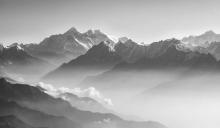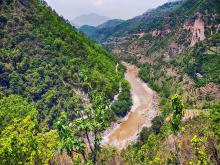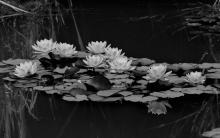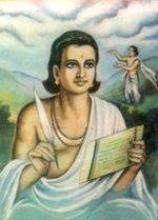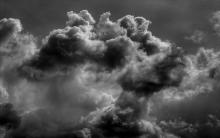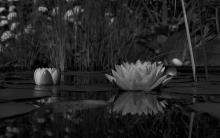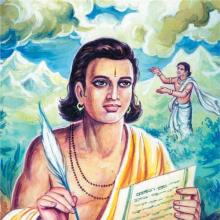Author:hari
ಕಾವ್ಯಾನುಶಾಸನದ ಕೆಲವು ವೈಶಿಷ್ಟ್ಯಗಳು
ಗ್ರಂಥಗತ ವಿಷಯಗಳನ್ನು ಪರಿಚಯಿಸಿಕೊಂಡ ಬಳಿಕ ಇಲ್ಲಿಯ ಕೆಲವು ವೈಶಿಷ್ಟ್ಯಗಳನ್ನೂ ಅಲಂಕಾರಶಾಸ್ತ್ರದಲ್ಲಿ ಇದರ ಸ್ಥಾನವನ್ನೂ ಅರಿಯಲು ತೊಡಗಬಹುದು.
The story so far is a tale of love that takes place in the king’s antaḥpura and the garden. Though there are incidents connected with the politics of the kingdom, release of a captive, and a victorious military conquest, it all happens in the background and we only get to hear about it; none of those incidents are staged; however, they contribute towards enhancing the main plot.
Mālavikāgnimitram is a play in five acts. The following is the summary of the plot –
ಜ್ಞಾನಕ್ಕೆ ಯಾವುದೇ ಎಲ್ಲೆ ಇಲ್ಲ. ಅದರಲ್ಲಿ ಪ್ರತ್ಯೇಕ ವಿಭಾಗಗಳನ್ನು ಕಲ್ಪಿಸುವುದು ನಮ್ಮ ಅನುಕೂಲತೆಗಾಗಿ, ನಮ್ಮ ಇತಿ-ಮಿತಿಗಳಿಗೆ ಅನುಸಾರವಾಗಿ. ಲೋಕಸಾಮಾನ್ಯದ ಸ್ಥಿತಿ ಹೀಗಿದ್ದರೂ ಕೆಲವರು ಮಹನೀಯರು ಜ್ಞಾನವನ್ನು ಅಖಂಡವಾಗಿ ಗ್ರಹಿಸಿ ಅದರ ಅನೇಕ ಶಾಖೆಗಳಲ್ಲಿ ಪರಿಶ್ರಮಿಸಿ ಪರಿಣತಿಯನ್ನು ಪಡೆಯುತ್ತಾರೆ. ಭುವನದ ಭಾಗ್ಯ ಎನಿಸುವ ಈ ಬಗೆಯ ಹಲವರು ಪ್ರಾಜ್ಞರು ಪ್ರಾಚೀನ ಭಾರತದಲ್ಲಿ ಜನ್ಮ ತಳೆದಿದ್ದುದು ನಮ್ಮ ಹೆಮ್ಮೆ. ಆಚಾರ್ಯ ಹೇಮಚಂದ್ರ ಸೂರಿ ಈ ಸಾಲಿನಲ್ಲಿ ಮೊದಲಿಗೇ ಸಲ್ಲುವನು. ವಿದ್ಯಾಜಗತ್ತು ಈತನನ್ನು ‘ಕಲಿಕಾಲಸರ್ವಜ್ಞ’ ಎಂದು ಗೌರವಿಸಿದೆ.
Kālidāsa uses astrological terms such as uccha and jāmitra in his works; these are from Greek origin. From this, we can estimate that he did not live before 350 CE. Mallinātha, the celebrated commentator on Kālidāsa’s poems interprets the line from Meghadūta – diṅnāgānāṃ pathi pariharan sthūla-hastāvalepān as a reference to a scholar named Diṅnāga who had voiced dissent against the poet’s views. Mallinātha lived at least a thousand years after Kālidāsa; therefore, it is hard to establish the veracity of his claim.
It is difficult to tell when and where Kālidāsa lived, just as in the case of Bhāsa. Quite an amount of research has taken place on the subject and there have been numerous debates about the poet’s details. In fact, no other Sanskrit poet appears to have been discussed to this extent; however, we must admit that the search has not yielded the required results yet. Just as with Bhāsa, there are two diverging opinions about Kālidāsa’s life.

